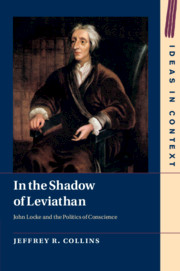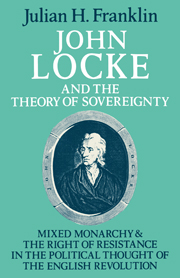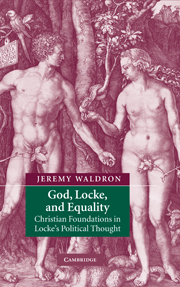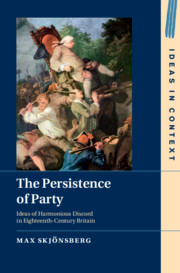In the Shadow of Leviathan
Thomas Hobbes and John Locke sit together in the canon of political thought but are rarely treated in common historical accounts. This book narrates their intertwined careers during the Restoration period, when the two men found themselves in close proximity and entangled in many of the same political conflicts. Bringing new source material to bear, In the Shadow of Leviathan establishes the influence of Hobbesian thought over Locke, particularly in relation to the preeminent question of religious toleration. Excavating Hobbes's now forgotten case for a prudent, politique toleration gifted by sovereign power, Jeffrey R. Collins argues that modern, liberal thinking about toleration was transformed by Locke's gradual emancipation from this Hobbesian mode of thought. This book investigates those landmark events - the civil war, Restoration, the popish plot, the Revolution of 1688 - which eventually forced Locke to confront the limits of politique toleration, and to devise an account of religious freedom as an inalienable right.
- Reopens the old and neglected question of Hobbes's influence over Locke with new evidence and interpretive methods
- Develops and explains not just the arguments of Hobbes and Locke, but their political context, the circulation and reception of their ideas, and the print history of their books
- Draws out the significance of early modern intellectual history to modern, liberal thinking around religious toleration
Reviews & endorsements
'This is a major scholarly contribution, and among many important contributions of this extremely valuable new book by one of the most important interpreters of Hobbes, and now also of Locke.' John Marshall, Hobbes Studies
'In the Shadow of Leviathan is a worthy sequel to Jeffrey Collins's outstanding 2005 book, The Allegiance of Thomas Hobbes … Among the many virtues of Collins's book, the most impressive is his meticulous examination of the historical context in which the shift in Locke's thinking occurred. In a time in which many academic books are written too hastily, it is satisfying to read a work that is clearly the product of many years of painstaking research. Political theorists, in particular, will find that they have much to learn - as this one did - from Collins's thorough examination of the debates and political dynamics of the Interregnum and especially the Restoration.' Devin Stauffer, The Review of Politics
'A definitive and transformative study.' E. J. Eisenach, Choice
'… Collins's consistently brilliant reading of Hobbes and Locke through the lens of 'the Restoration toleration wars' provides a vital reminder of the inadequacy of toleration, in and of itself, as the interpretive key to the ecclesiastical politics of the era.' Brent S. Sirota, Journal of British Studies
'… In the Shadow of Leviathan is an important work of scholarship from which no one can fail to learn a great deal. It is to be hoped that it will stimulate other scholars to rescue the relationship between Locke and Hobbes from a period of anomalous and wholly undeserved neglect.' Nicholas Jolley, Journal of the History of Philosophy
'Jeffrey Collins has written a hulk of a book, one carrying not an ounce of fat. Erudite and forensic, it is a challenging read. But it is also a book that shows what intellectual history at its very best can do …' Robert G. Ingram, The Journal of Ecclesiastical History
'… Jeffrey R. Collins's magnificent study In the Shadow of Leviathan: John Locke and the Politics of Conscience invites us to set aside these familiar configurations in a favor of a more nuanced set of intellectual and political affiliations and disaffiliations …' Brent S. Sirota, Journal of British Studies
Product details
April 2020Hardback
9781108478816
456 pages
236 × 160 × 28 mm
0.77kg
Temporarily unavailable - available from TBC
Table of Contents
- Acknowledgements
- Note on the text
- List of abbreviations
- Introduction
- 1. John Locke and Interregnum Hobbism
- 2. The Restoration projects of Thomas Hobbes
- 3. John Locke and the Restoration politique
- 4. Non-domination liberty in spiritual context
- 5. Locke, conscience, and the Libertas Ecclesiae
- 6. Locke and Catholicism: the 'Roman Leviathan'
- 7. Locke and a 'more liberal' Hobbism
- Conclusion. Conscience and Liberalism's two paths
- Bibliography
- Index.








